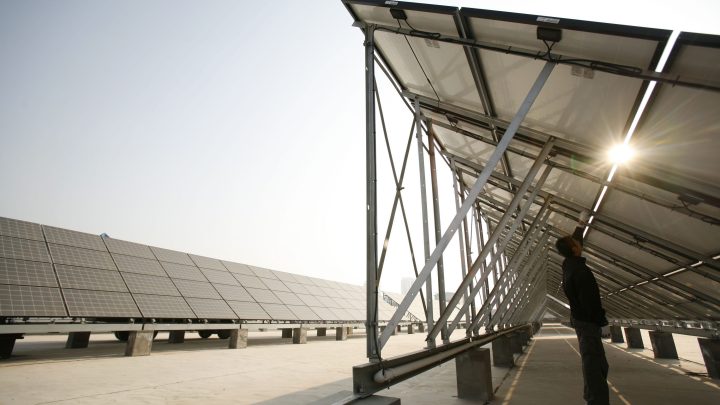
A plan for alleviating poverty and climate change
A plan for alleviating poverty and climate change

Climate week in New York City, a partnership with the United Nations General Assembly, wraps up this weekend. Climate experts, diplomats and business leaders are gathering to discuss strategies to counteract human effects on the climate.
Earlier this week, the McKinsey Global Institute published a fresh report, “From Poverty to Empowerment: Raising the Bar for Sustainable and Inclusive Growth.” It’s focused on two of the most pressing challenges we face: poverty and climate change. And the report looks closely at how we can lift more people out of poverty and at the same time meet sustainable development goals that don’t exacerbate global warming.
Anu Madgavkar is a co-author of the report. She’s a partner at the McKinsey Global Institute and spoke with “Marketplace Morning Report” host Sabri Ben-Achour. The following is an edited transcript of their conversation.
Sabri Ben-Achour: So the idea here is that lifting more people out of poverty requires more economic development, but more economic development requires more energy demand and could contribute to climate change. So are these two goals — ending poverty and stopping global warming — are they at odds?
Anu Madgavkar: Well fighting poverty and fighting for the planet are, in reality, deeply interconnected goals. For example, if you mitigate climate change, you protect the most vulnerable and poorest communities. But there are tensions, because economic development does mean that billions more people who would consume energy, and that raises the ask on what we need to do for the transition.
Ben-Achour: What kind of investment is needed to close the gaps in, let’s say, the next 10 years?
Madgavkar: Well, we think on the poverty side, there’s tremendous progress being made, and a billion people have exited extreme poverty [between 1990 and 2015], moving from a $2.15 daily consumption threshold to more like $12 per person per day — which is enough to give you a modest sense of security about meeting basic needs — that is a big gap. Some 4.7 billion people around the world are below that threshold today. And about 4% of global [gross domestic product] would need to shift.
And then on the climate side, it’s very clear that we need to raise the world’s level of spending on low-emission technologies of all sorts. And the shift there is another 4%. So all told, 8% of global GDP would need to shift to meet both these goals fully.
Ben-Achour: Are there any strategies that you would recommend for how to get all of that investment moving?
Madgavkar: If you think about economic growth and productivity growth, that has the potential to create better-paying jobs. People who are more skilled and can move into those jobs and raise their income levels. And growth also spurs [research and development] and learning on the technology front. So all told, these forces can actually bridge something like two-thirds of the economic empowerment gap, and almost 40% of the net-zero gap. If businesses can lead on this doing what they do best, which is pursuing opportunities that are win-wins, that make business sense as well, and really leaning into the opportunity to pay living wages, invest in R&D to make goods and services and net-zero technologies more cost effective.
Ben-Achour: Given that eradicating poverty and fighting climate change are collaborative efforts, how realistic is it that we’ll get the amount of cooperation required?
Madgavkar: My sense is our message is resonating. And there are signs of a new global narrative that’s emerging, a narrative that acknowledges that it’s two goals, or both goals, that matter, not just one. It is about prosperity for all and it is about the planet. And also the growth and innovation are crucial parts of the solution, not part of the problem.
There’s a lot happening in the world. Through it all, Marketplace is here for you.
You rely on Marketplace to break down the world’s events and tell you how it affects you in a fact-based, approachable way. We rely on your financial support to keep making that possible.
Your donation today powers the independent journalism that you rely on. For just $5/month, you can help sustain Marketplace so we can keep reporting on the things that matter to you.












